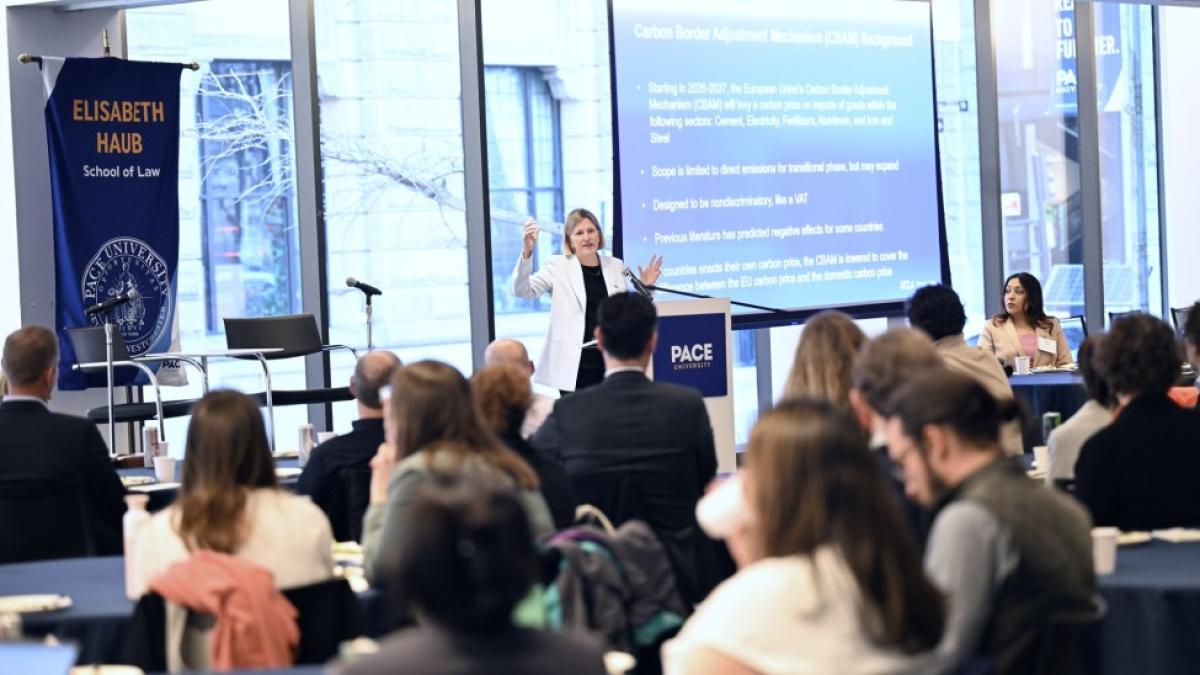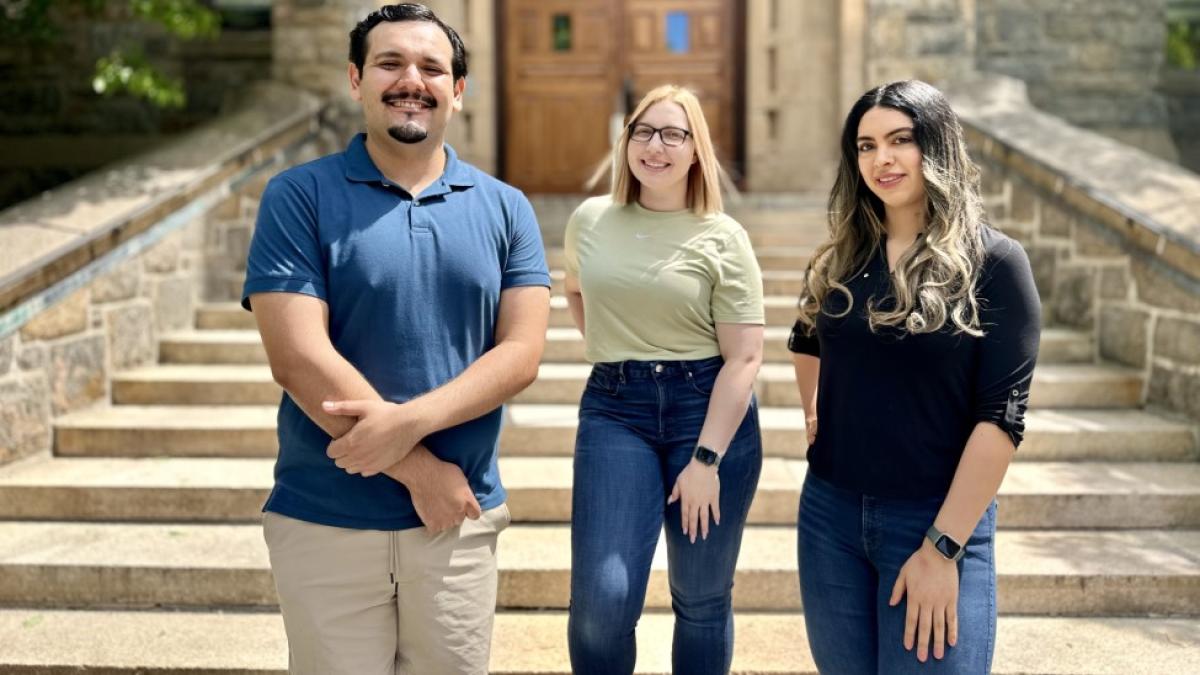Taxation Law at Haub Law
The Taxation Path to Practice at the Elisabeth Haub School of Law at Pace University equips students with the doctrinal foundation and practical skills necessary to advise individuals, businesses, and nonprofit organizations on the tax consequences of their activities, as well as to represent the government in fairly assessing the same. Students develop expertise in federal taxation, including taxation of individuals and business organizations, and gain exposure to wealth transfer taxation and state and local tax systems. The curriculum familiarizes students with tax compliance, navigating tax disputes, and designing tax-efficient transactions. Through a small core of advanced coursework, externships, and opportunities for scholarly research, students gain hands-on experience and a critical understanding of the role taxation plays in shaping economic behavior and public policy.
Our faculty are nationally recognized experts and scholars in tax law, bringing their deep professional experience, research, and leadership into the classroom to enhance students’ understanding of this complex and evolving field. Their scholarship and engagement influence the national conversation and shape the future of tax law and policy. Through their connections and collaboration, Pace Haub Law partners with leading organizations such as the American Tax Policy Institute (ATPI) and the American College of Trust and Estate Counsel (ACTEC) to create valuable opportunities for students. Notably, through our partnership with ACTEC, Pace Haub Law was one of the founding schools of a national “resume book” for students and recent graduates pursuing careers in trusts & estates and tax law. This initiative provides students with unique access to professional networks and meaningful career pathways in these specialized areas of practice.
If you are thinking about a career in Taxation Law, you may have the opportunity to practice in any of the following settings and participate in a variety of legal activities and roles during your career as listed below.
-
- Small, midsize, or large law firm
- Accounting firms
- Family office
- Trust companies
- Operating businesses
- Local, state, or federal government
-
- Advise individuals, businesses, and nonprofit organizations on the tax consequences of financial transactions and events
- Interpret and apply federal, state, and local tax laws to assist clients with tax planning and compliance
- Represent clients in disputes with tax authorities, including audits, administrative appeals, and litigation
- Structure business formations, mergers, acquisitions, succession strategies and other transactions to achieve tax efficiency
- Structure estate plans, including lifetime giving and death-time transfers, to achieve tax efficiency
- Assist in the preparation of tax returns and disclosure documents
- Monitor legislative and regulatory developments to provide up-to-date guidance on emerging tax issues
To complete the Taxation Path to Practice track, students should consider the courses listed below. These courses are guidelines, not requirements, based on our faculty’s advice on how best to prepare for potential careers in Taxation.
-
Students should take two foundational courses as early as possible:
-
Students should take at least 2 of the following intermediate courses:
- Accounting for Lawyers LAW 673
- Drafting Legal Documents LAW 825
- Estate Administration LAW 727
- Estate Planning LAW 700
- Estate and Gift Tax Law and Planning or Estate and Gift Tax (when offered)
- Nonprofit Organizations LAW 735
- State and Local Taxation LAW 747
- Tax Policy Seminar LAW 778
-
Students should take at least one of the following related courses:
- Clinic - Fairbridge Investor Rights Clinic LAW 826A/826B
- Externship: Legal Services Law 829 (Taxation-related placement)
- Externship: State Judicial LAW 798 (Surrogate’s Court-related placement or Taxation-related placement)
- Externship: Corporate LAW 786 (Taxation-related placement)
- Externship: Environmental LAW 821 (Taxation-related placement)
- Externship: Social Justice Advocacy 609 (Taxation-related placement)
- Pro Bono Scholars Program LAW 805 (Taxation-related placement)
- Semester in Practice LAW 992 LAW 805B (Taxation-related placement)
-
Students should take at least one of the following related courses:
Featured Faculty
News and Stories
The Elisabeth Haub School of Law at Pace University co-hosted a major symposium with the American Tax Policy Institute (ATPI) and the Pace Environmental Law Review, bringing together a distinguished group of scholars, policymakers, and practitioners to explore how tax policy can serve as a powerful tool in responding to environmental challenges and promoting sustainability.
Pace Haub Law students are sought-after candidates for positions in large accounting firms, law firms of all sizes, businesses, and non-profit organizations. In recent years, several graduates of Haub Law have continued their studies in Masters of Law in Taxation programs at Boston University, Georgetown University, Northwestern University, the University of Miami, and the University of San Diego.
In her article, Confronting Inequality: Three Eras of Gender and Tax Scholarship, to be published in the Loyola of Los Angeles Law Review (58 Loy. L.A. L. Rev., forthcoming 2025), Pace Haub Law Professor Bridget J. Crawford traces the evolution of gender and tax scholarship through the metaphor of quilting. She argues that scholars—like quilters—must continuously reposition their work to preserve patterns of progress and confront new pressures.
Contact
For more information regarding this Path to Practice, contact Professor Bridget Crawford.




